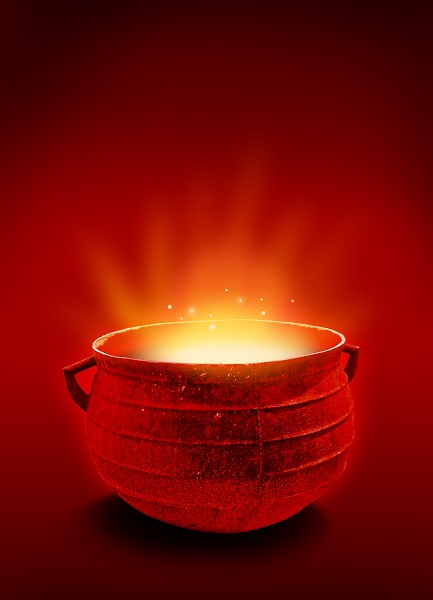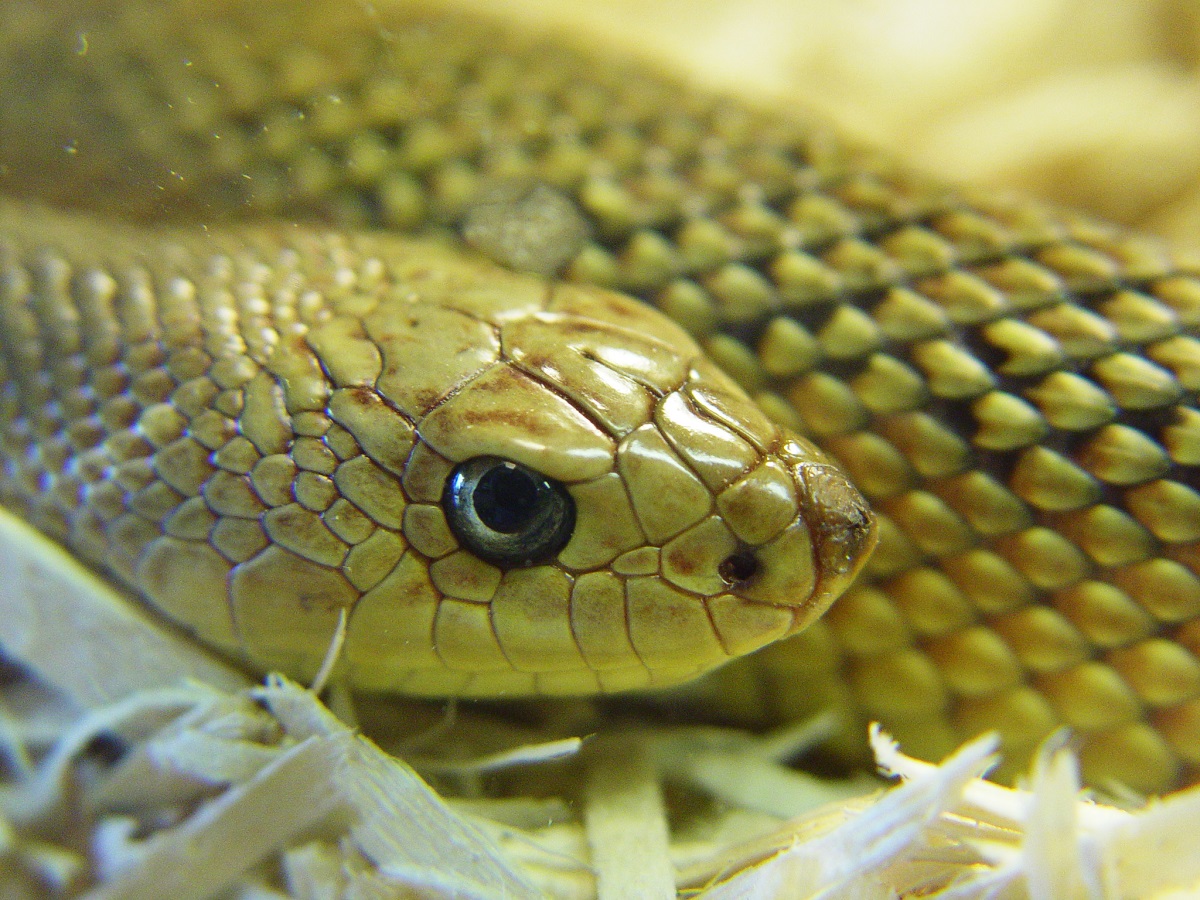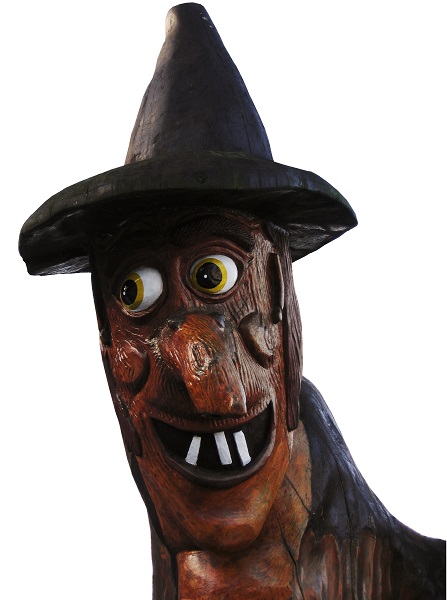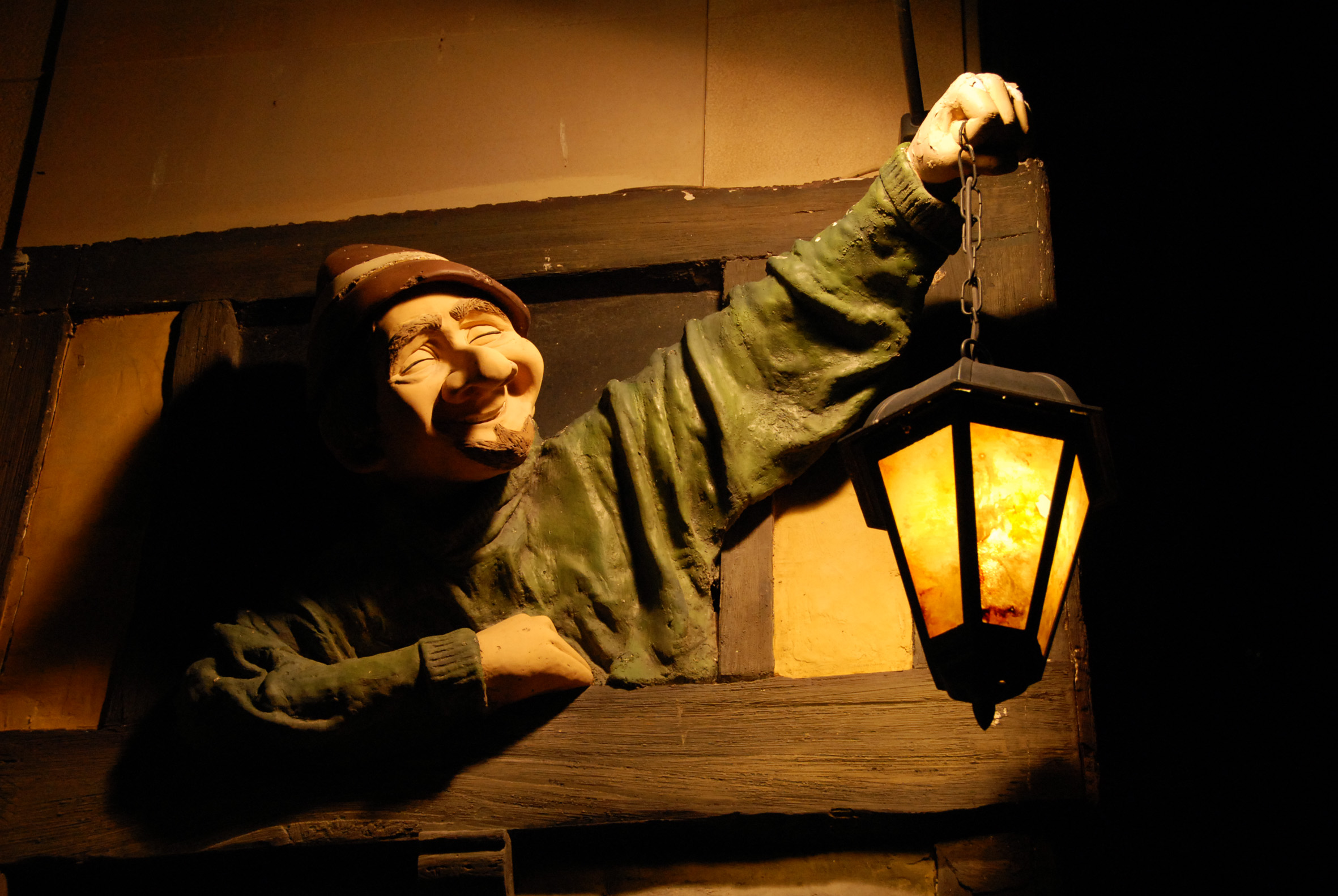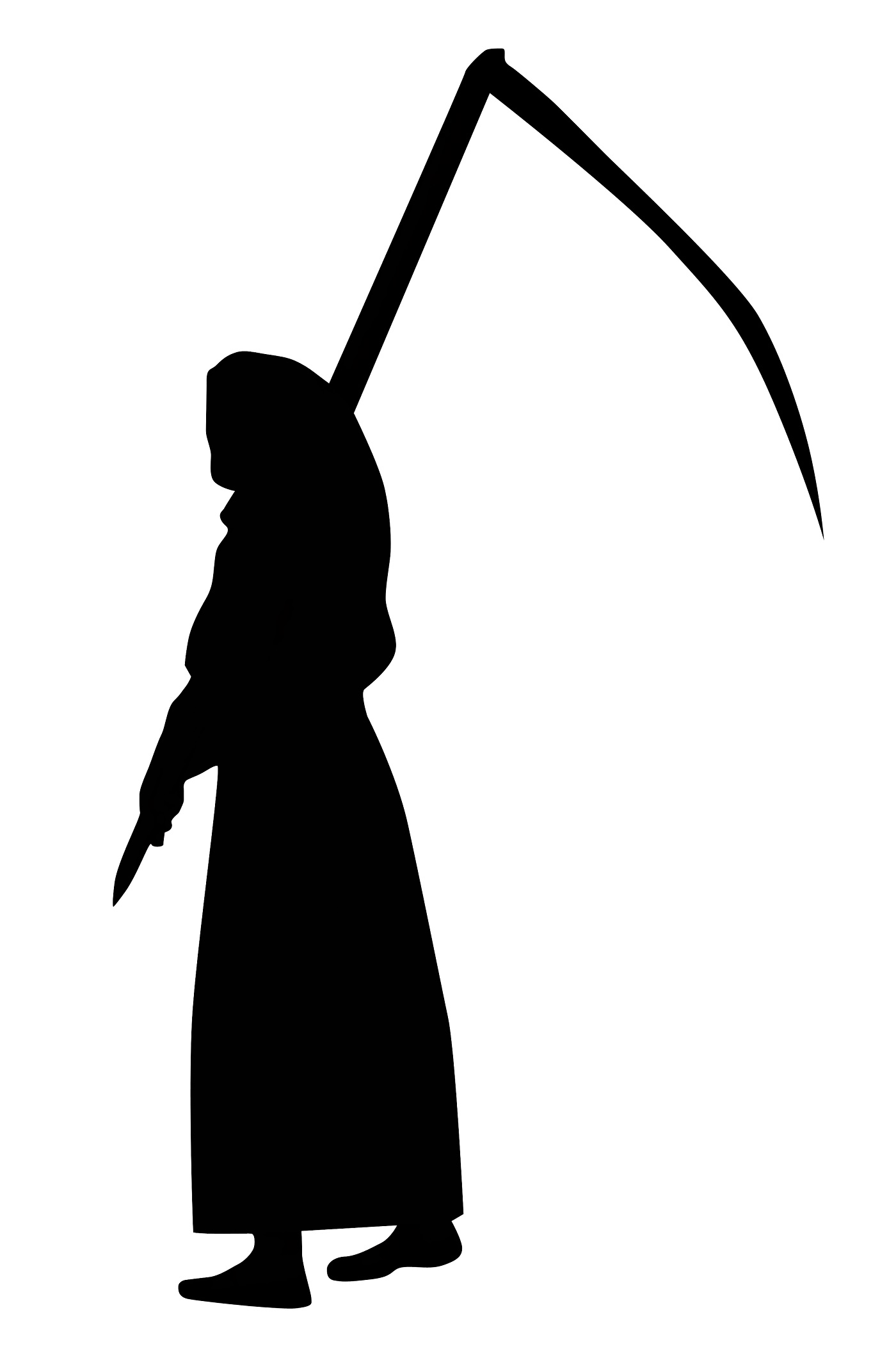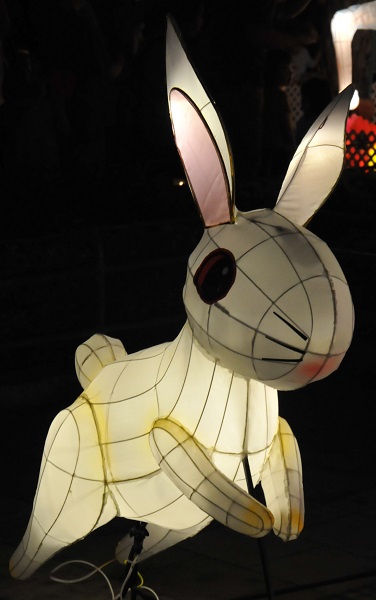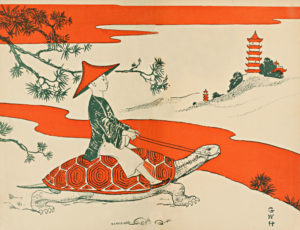VARDIELLO (Stories from Pentamerone, 1637) by Giambattista Basile

If Nature had given to animals the necessity of clothing themselves, and of buying their food, the race of quadrupeds would inevitably be destroyed. Therefore it is that they find their food without trouble,—without gardener to gather it, purchaser to buy it, cook to prepare it, or carver to cut it up; whilst their skin defends them from the rain and snow, without the merchant giving them cloth, the tailor making the dress, or the errand-boy begging for a drink-penny. To man however, who has intelligence, Nature did not care to grant these indulgences, since he is able to procure for himself what he wants. This is the reason that we commonly see clever men poor, and blockheads rich; as you may gather from the story which I am going to tell you.
Grannonia of Aprano was a woman of a great sense and judgment, but she had a son named Vardiello, who was the greatest booby and simpleton in the whole country round about. Nevertheless, as a mother’s eyes are bewitched and see what does not exist, she doted upon him so much, that she was for ever caressing and fondling him as if he were the handsomest creature in the world.
Now Grannonia kept a brood-hen, that was sitting upon a nest of eggs, in which she placed all her hope, expecting to have a fine brood of chickens, and to make a good profit of them. And having one day to go out on some business, she called her son, and said to him, “My pretty son of your own mother, listen to what I say: keep your eye upon the hen, and if she should get up to scratch and pick, look sharp and drive her back to the nest; for otherwise the eggs will grow cold, and then we shall have neither eggs nor chickens.”
“Leave it to me,” replied Vardiello, “you are not speaking to deaf ears.”
“One thing more,” said the mother; “look-ye, my blessed son, in yon cupboard is a pot full of certain poisonous things; take care that ugly Sin does not tempt you to touch them, for they would make you stretch your legs in a trice.”
“Heaven forbid!” replied Vardiello, “poison indeed will not tempt me; but you have done wisely to give me the warning; for if I had got at it, I should certainly have eaten it all up.”
Thereupon the mother went out, but Vardiello stayed behind; and, in order to lose no time, he went into the garden to dig holes, which he covered with boughs and earth, to catch the little thieves who come to steal the fruit. And as he was in the midst of his work, he saw the hen come running out of the room, whereupon he began to cry, “Hish, hish! this way, that way!” But the hen did not stir a foot; and Vardiello, seeing that she had something of the donkey in her, after crying “Hish, hish,” began to stamp with his feet; and after stamping with his feet to throw his cap at her, and after the cap a cudgel which hit her just upon the pate, and made her quickly stretch her legs.
When Vardiello saw this sad accident, he bethought himself how to remedy the evil; and making a virtue of necessity, in order to prevent the eggs growing cold, he set himself down upon the nest; but in doing so, he gave the eggs an unlucky blow, and quickly made an omelet of them. In despair at what he had done, he was on the point of knocking his head against the wall; at last, however, as all grief turns to hunger, feeling his stomach begin to grumble, he resolved to eat up the hen. So he plucked her, and sticking her upon a spit, he made a great fire, and set to work to roast her. And when she was cooked, Vardiello, to do everything in due order, spread a clean cloth upon an old chest; and then, taking a flagon, he went down into the cellar to draw some wine. But just as he was in the midst of drawing the wine, he heard a noise, a disturbance, an uproar in the house, which seemed like the clattering of horses’ hoofs. Whereat starting up in alarm and turning his eyes, he saw a big tom-cat, which had run off with the hen, spit and all; and another cat chasing after him, mewing, and crying out for a part.
Vardiello, in order to set this mishap to rights, darted upon the cat like an unchained lion, and in his haste he left the tap of the barrel running. And after chasing the cat through every hole and corner of the house, he recovered the hen; but the cask had meanwhile all run out; and when Vardiello returned, and saw the wine running about, he let the cask of his soul empty itself through the tap-holes of his eyes. But at last judgment came to his aid and he hit upon a plan to remedy the mischief, and prevent his mother’s finding out what had happened; so, taking a sack of flour, filled full to the mouth, he sprinkled it over the wine on the floor.
But when he meanwhile reckoned up on his fingers all the disasters he had met with, and thought to himself that, from the number of fooleries he had committed, he must have lost the game in the good graces of Grannonia, he resolved in his heart not to let his mother see him again alive. So thrusting his hand into the jar of pickled walnuts which his mother had said contained poison, he never stopped eating until he came to the bottom; and when he had right well filled his stomach he went and hid himself in the oven.
In the meanwhile his mother returned, and stood knocking for a long time at the door; but at last, seeing that no one came, she gave it a kick; and going in, she called her son at the top of her voice. But as nobody answered, she imagined that some mischief must have happened, and with increased lamentation she went on crying louder and louder, “Vardiello! Vardiello! are you deaf, that you don’t hear? Have you the cramp, that you don’t run? Have you the pip, that you don’t answer? Where are you, you rogue? Where are you hidden, you naughty fellow?”
Vardiello, on hearing all this hubbub and abuse, cried out at last with a piteous voice, “Here I am! here I am in the oven; but you will never see me again, mother!”
“Why so?” said the poor mother.
“Because I am poisoned,” replied the son.
“Alas! alas!” cried Grannonia, “how came you to do that? What cause have you had to commit this homicide? And who has given you poison?” Then Vardiello told her, one after another, all the pretty things he had done; on which account he wished to die and not to remain any longer a laughing-stock in the world.
The poor woman, on hearing all this, was miserable and wretched, and she had enough to do and to say to drive this melancholy whimsey out of Vardiello’s head. And being infatuated and dotingly fond of him, she gave him some nice sweetmeats, and so put the affair of the pickled walnuts out of his head, and convinced him that they were not poison, but good and comforting to the stomach. And having thus pacified him with cheering words, and showered on him a thousand caresses, she drew him out of the oven. Then giving him a fine piece of cloth, she bade him go and sell it, but cautioning him not to do business with folks of too many words.
“Tut, tut!” said Vardiello, “let me alone; I know what I’m about, never fear.” So saying, he took the cloth, and went his way through the city of Naples, crying, “Cloth! cloth!” But whenever any one asked him, “What cloth have you there?” he replied, “You are no customer for me; you are a man of too many words.” And when another said to him, “How do you sell your cloth?” he called him a chatterbox, who deafened him with his noise. At length he chanced to espy, in the courtyard of a house which was deserted on account of the Monaciello, a plaster statue; and being tired out, and wearied with going about and about, he sat himself down on a bench. But not seeing any one astir in the house, which looked like a sacked village, he was lost in amazement, and said to the statue: “Tell me, comrade, does no one live in this house?” Vardiello waited awhile; but as the statue gave no answer, he thought this surely was a man of few words. So he said, “Friend, will you buy my cloth? I’ll sell it you cheap.” And seeing that the statue still remained dumb, he exclaimed, “Faith, then, I’ve found my man at last! There, take the cloth, examine it, and give me what you will; to-morrow I’ll return for the money.”
So saying Vardiello left the cloth on the spot where he had been sitting, and the first mother’s son who passed that way found the prize and carried it off.
When Vardiello returned home without the cloth, and told his mother all that had happened, she wellnigh swooned away, and said to him, “When will you put that headpiece of yours in order? See now what tricks you have played me—only think! But I am myself to blame, for being too tender-hearted, instead of having given you a good beating at first; and now I perceive that a pitiful doctor only makes the wound incurable. But you’ll go on with your pranks until at last we come to a serious falling-out, and then there will be a long reckoning, my lad!”
“Softly, mother,” replied Vardiello, “matters are not so bad as they seem; do you want more than crown-pieces brand new from the mint? Do you think me a fool, and that I don’t know what I am about? To-morrow is not yet here. Wait awhile, and you shall see whether I know how to fit a handle to a shovel.”
The next morning, as soon as the shades of Night, pursued by the constables of the Sun, had fled the country, Vardiello repaired to the courtyard where the statue stood, and said, “Good-day, friend! Can you give me those few pence you owe me? Come, quick, pay me for the cloth!” But when he saw that the statue remained speechless, he took up a stone and hurled it at its breast with such force that it burst a vein, which proved, indeed, the cure to his own malady; for some pieces of the statue falling off, he discovered a pot full of golden crown-pieces. Then taking it in both his hands, off he ran home, head over heels, as far as he could scamper, crying out, “Mother, mother! see here! what a lot of red lupins I’ve got. How many! how many!”
His mother, seeing the crown-pieces, and knowing very well that Vardiello would soon make the matter public, told him to stand at the door until the man with milk and new-made cheese came past, as she wanted to buy a pennyworth of milk. So Vardiello, who was a great glutton, went quickly and seated himself at the door; and his mother showered down from the window above raisins and dried figs for more than half an hour. Whereupon Vardiello, picking them up as fast as he could, cried aloud, “Mother, mother! bring out some baskets; give me some bowls! Here, quick with the tubs and buckets! for if it goes on to rain thus we shall be rich in a trice.” And when he had eaten his fill Vardiello went up to sleep.
It happened one day that two countrymen—the food and life-blood of the law-courts—fell out, and went to law about a gold crown-piece which they had found on the ground. And Vardiello passing by said, “What jackasses you are to quarrel about a red lupin like this! For my part I don’t value it at a pin’s head, for I’ve found a whole potful of them.”
When the judge heard this he opened wide his eyes and ears, and examined Vardiello closely, asking him how, when, and where he had found the crowns. And Vardiello replied, “I found them in a palace, inside a dumb man, when it rained raisins and dried figs.” At this the judge stared with amazement; but instantly seeing how the matter stood, he decreed that Vardiello should be sent to a madhouse, as the most competent tribunal for him. Thus the stupidity of the son made the mother rich, and the mother’s wit found a remedy for the foolishness of the son: whereby it is clearly seen that—
“A ship when steered by a skilful hand
Will seldom strike upon rock or sand.”
If you liked this story, leave me a comment down below. Join our Facebook community. And don’t forget to Subscribe!
You might also enjoy other stories by Giambattiste Basile.

